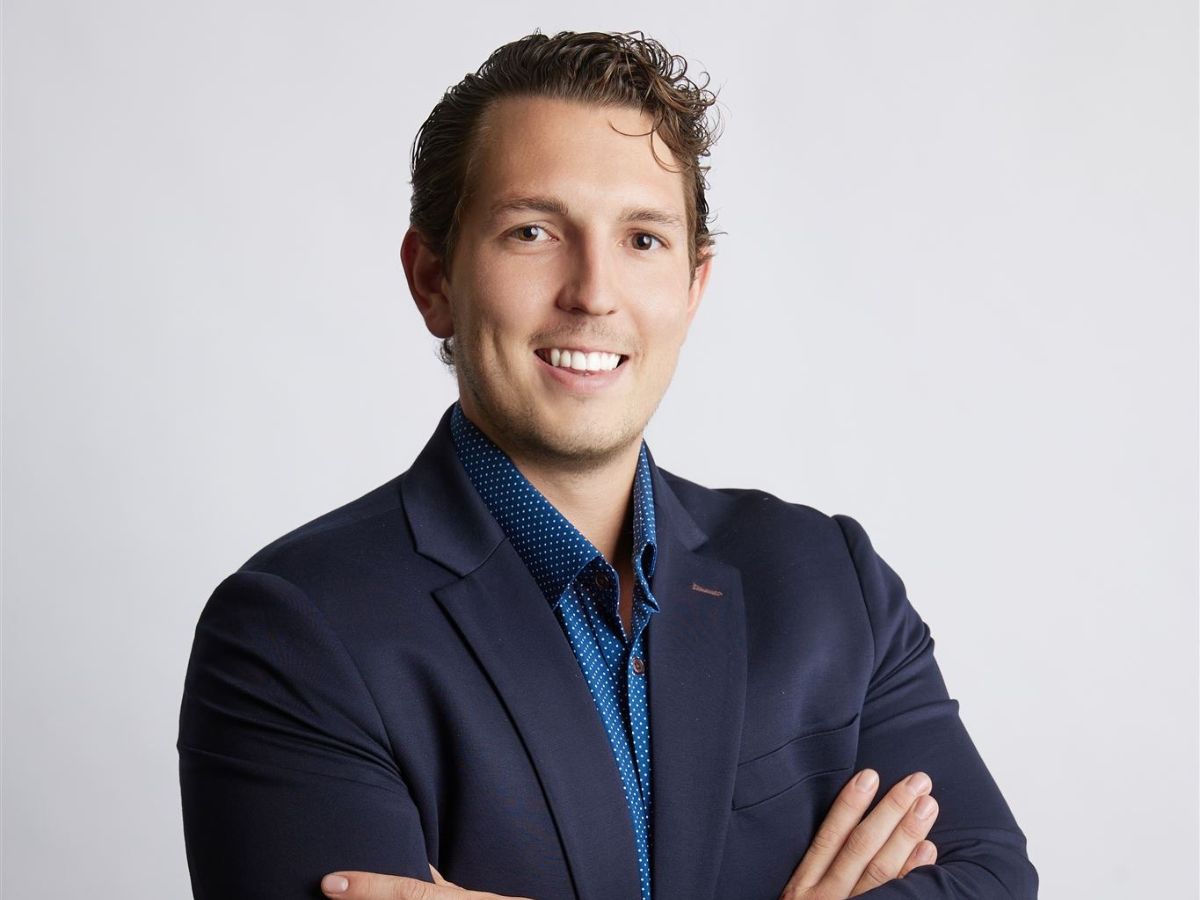Economic reconciliation and building career purpose

With a professional background in finance and lived experience growing up in the First Nation community of Tyendinaga Mohawk Territory, Camden Maracle (A Strong Frame) is forging a path driven by career purpose – an outlook he believes is vastly underrepresented on reserves.
“Growing up, I went to Long House and learned the language,” Maracle (Finance and Economics ‘19) explains. “I went to elementary school with 30 kids in a classroom, but only a few of us went on to post-secondary. Now that we have these basic requirements like education, how can we create economic stimulants in our communities?”
Maracle’s current role as a Commercial Account Manager at TD Bank sees him manage a portfolio of 68 businesses across Ontario. Directly with a team of three, he works across securities, private banking and other bank resources to ensure clients get the “one TD” experience.
“Looking at my job now, there’s a purpose held within aspects of my career that we don’t see on reserves. The stimulants that get pushed onto reserves do not meet a standard of purpose when it comes to job fulfillment.”
Maracle traces back his dedication to economic reconciliation throughout his career leading up to TD; at BMO, the role of Indigenous Banking Specialist was explicitly created for him.
“I consider that portion of my career the learning portion. The Indigenous unit (external link) was around eight people. We were spearheading the work of financial institutions on reserves, like on-reserve housing programs that offer mortgage financing and trust valuations for land claim settlements.”
“After multiple years of me saying I want to be in this space, I was also working with campus recruitment and stakeholder engagement with Indigenous communities,” he adds.
The Bank of Canada describes economic (external link) reconciliation as a return to Indigenous prosperity, citing data showing that employment among off-reserve Indigenous people is growing five times faster (external link) than non-Indigenous employment. For Maracle, however, true economic reconciliation will be achieved when growth opportunities are on reserves.
“I don’t want kids to see their parents in the smokeshop and think they have to go [work] in the smokeshop. Some of our best talents need to leave their families to achieve greater prosperity in their careers. We lose some of our best talents,” he explains, discussing success for Indigenous youth. (external link)
In the school's Indigenous Alumni Series, Maracle shares his experience moving to Toronto, finding his sense of community as an Indigenous person in Canada’s largest city and how the Ted Rogers Co-op program helped him define his career path and lead him to where he is today.
Outside his work in the finance sector, Maracle volunteers to support Indigenous communities across Ontario, ranging from Treasurer on the Board of the Native Canada Centre of Toronto (external link) (NCCT) to acting as a baseball coach with Indigenous Sports & Wellness Ontario. (external link)
“The NCCT changed my experience in Toronto, moving me along in my cultural awareness of off-reserve Indigenous people. It’s the largest friendship centre in Canada, offering social housing, childcare and Thursday-night drum circles,” he adds. “With Sports & Wellness, I’ve been able to help as a coach and with funding. We’ve worked with the Blue Jays Care Foundation and MLSE on sports initiatives for on-reserve communities.”
Maracle doesn’t talk about regrets, or a lack thereof when discussing his decision to move off-reserve to pursue his education at the Ted Rogers School of Management. The challenges faced are around breaking the generational stigma.
“My community is two hours east of [Toronto]. I was able to come to the city a few times before visiting, but for further communities, it’s a jump into the abyss. I would not have had the same opportunities outside of Ted Rogers, especially being directly involved in the Financial District and starting to work with BMO in second-year,” Maracle says.
“I worked with Indigenous Student Services for three years, and I wasn’t always the best student, but I was good at showing up at every event,” he says, smiling. “It’s paid off in the long run.”
For all the social, political and policy-driven conversations around economic reconciliation, it’s important to take a step back and remember that on-and-off-reserve life is not as disconnected as one might think.
“I’ve had the ability to travel to northern reserves and see the grassroots economic system that flows there. It’s impressive to watch,” Maracle adds. “Look, nobody is ignorant of the outside world. We all have iPhones.”
“If we can bring all that we’re seeing outside, the impactful jobs, to the reserves – that’s what will lead to a generational break.”